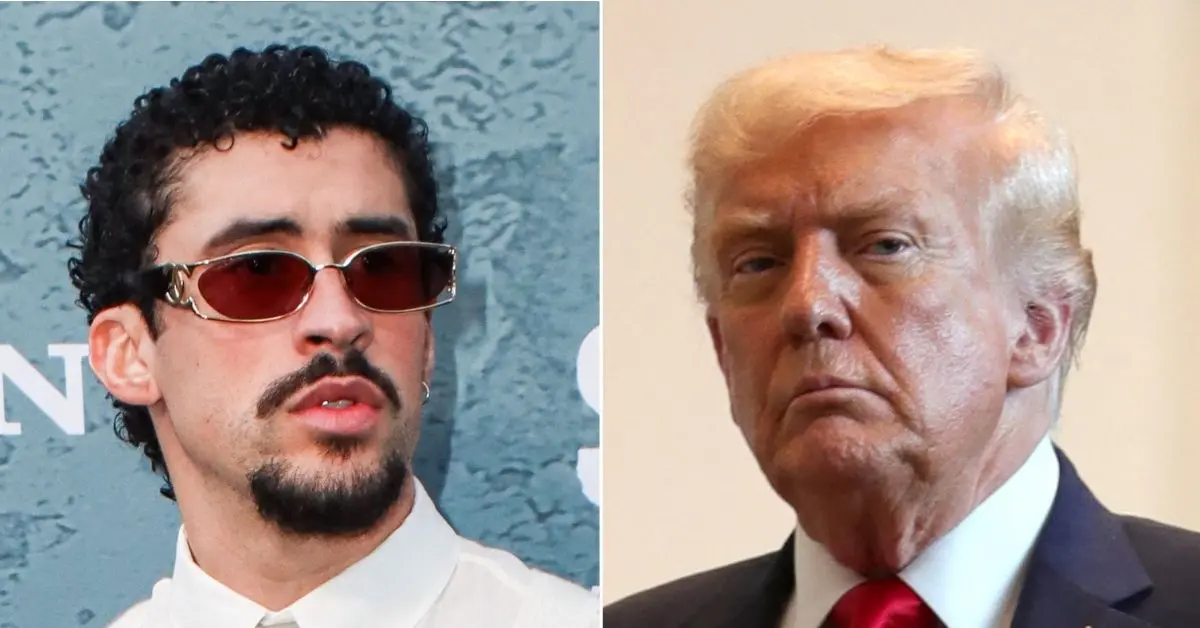
Not long after California surgeon Andrew S. Hsu landed a job with a cosmetic surgery chain in Georgia, several of his patients alleged they suffered disfiguring injuries, and even his new employer allegedly had doubts about his competence, court records show.
Hsu, a board-certified general surgeon, was one of six out-of-state doctors who joined the Atlanta Goals Aesthetics & Plastic Surgery center during the pandemic. The surgeons received temporary licenses to practice in Georgia, which state officials granted in response to the sudden need for more medical personnel to address the Covid outbreak — even though the center specialized in elective cosmetic surgeries, such as Brazilian butt lifts, or BBLs, and liposuction, paid for in cash or on credit.
The Atlanta center announced its opening in March 2021 as an expansion of New York-based Goals Aesthetics & Plastic Surgery, which markets “precision body contouring” for about a dozen surgery clinics in eight states, promising patients a “dream body in just one visit.”
But the Atlanta center’s early days were marred by allegations of substandard patient care. Court records show that at least 20 women filed medical malpractice lawsuits, several of which were later dismissed, against the facility, or its owner and surgeons. Hsu was named as a defendant in seven suits filed against the Atlanta center, more than any other physician there. An eighth patient sued Hsu alleging negligence in an operation he performed at a Goals office in New York.
Hsu did not respond to requests for comment. Goals declined to comment. Both have denied any negligence in response to the lawsuits.
Cosmetic surgery chains across the country are attracting patients by promising “minimally invasive” operations to reshape their bodies or get rid of stubborn fat — even helping arrange outside financing for people who can’t pay upfront. Hundreds of thousands of patients are undergoing such procedures each year, and plastic surgeons can earn more than $500,000 each year in one of the highest-paid specialties in American medicine.
An investigation by KFF Health News found that lawsuits filed by injured patients have trailed the industry’s growth, in some cases alleging that surgeons lacked adequate training, had histories of malpractice lawsuits or had faced disciplinary action by state medical licensing boards — yet crossed into another state and kept practicing.
In the Atlanta lawsuits, Goals has denied any negligence and won dismissal of several of them because patients had signed papers agreeing to outside arbitration — which requires them to resolve disputes privately and outside the court system.
Yet, Goals argued in a separate contract dispute with a medical staffing firm that several of its Atlanta surgeons, including Hsu, were indeed prone to problems — either because they lacked adequate training or had troubled pasts, including investigations by state medical licensing boards into misconduct, court records show. One of Hsu’s Atlanta patients alleged in a separate lawsuit that she suffered in pain for more than a year because a piece of a scalpel was left inside her body after a BBL and liposuction.
In a June 2023 court filing in that contract dispute, Goals blamed the problems on a medical staffing firm — Barton Associates, a private equity-owned firm in Massachusetts — it said failed to do adequate background checks on the doctors it supplied. Barton denied the allegations and said it met all terms of the contract.
No public database exists to help patients learn the full practice histories of physicians, including cosmetic surgeons. And patients are largely left on their own to decipher which certificates hanging on a surgeon’s office wall, or ballyhooed in web advertising, signify appropriate training and which do not. Disputes among medical specialty groups over whose members are the best qualified to perform cosmetic operations — and deliver the best results — add to the confusion.
No government agency tracks injuries or other complication rates at clinics offering cosmetic surgery or any other type of operations. And in many jurisdictions, including Georgia, gaining access to court records — a possible red flag for spotting problems — is laborious and costly.
Charleetra Hornes, 52, who lives in the Atlanta suburbs and is suing the Goals center for medical malpractice, said she knew nothing of its alleged early troubles and chose the company because its advertising promised “minimal downtime” for recovery and that she would remain awake during the operation.
She said she paid $6,650 for a “double BBL” in which fat is suctioned from the stomach, purified and injected into the buttocks and hips to create what Goals calls a “natural-looking enhancement.”
Goals went ahead with her surgery July 2, 2022, even though she had tested positive for Covid that day, according to the suit. Hornes alleged that two days before the surgery, Goals assigned her to surgeon Thomas Shannon, who has worked for Goals in Georgia and Texas.
Though staff gave her pills to manage the discomfort, Hornes said, she suffered “excruciating pain” during the procedure, according to the suit.
That night, she spiked a fever that sent her to the emergency room. She spent two weeks in the hospital recovering from injuries, including a “severe burn on her side,” according to the suit.
“I’ve been disfigured and burned up, and it’s not fair,” she said in an interview.
In June 2024, Hornes sued Shannon, the Goals center and Barton Associates, alleging malpractice. On Sept. 2, a Georgia judge dismissed Shannon from the case, ruling that Hornes failed to serve him with the complaint in Texas before the statute of limitations ran out. He did not respond to requests for comment.
In a separate order issued on the same day, the judge also dismissed the other defendants, citing the statute of limitations issue and that Hornes had previously signed an arbitration agreement. Some cosmetic surgery chains and other medical practices ask patients to sign such agreements.
Hornes wishes she had learned more about the Atlanta surgery center, instead of accepting what she calls its “flashy” come-ons. “I wish I would have taken it more seriously,” she said in an interview, “because it was life-altering.”
Malpractice cases and settlements are useful tools
KFF Health News identified more than 200 lawsuits filed against multistate cosmetic surgery companies, mostly over the past seven years, including cases involving a dozen deaths, using databases of court records.
Lawsuits by themselves don’t prove wrongdoing. Many cases are settled under confidential terms that keep critical details under wraps. Yet, medical authorities and most physician licensing boards regard malpractice cases and settlements as a useful tool for detecting possible patterns of substandard health care that may harm patients.
Court files show that surgeons who were sued numerous times for malpractice — and in some cases disciplined by state medical boards for misconduct — have managed to get hired by cosmetic surgery chains.
Goals, owned by physician Sergey Voskin, has contracted with eight surgeons with three or more malpractice cases filed against them, including in the Atlanta area, court records allege. Gerald Hickson, founding director of the Vanderbilt Center for Patient and Professional Advocacy and an expert on medical malpractice issues, called that number of suits a “warning” of possible problems, despite their outcome.
Earlier this year, a Pennsylvania woman identified in court filings as “P.C.” sued Goals, Voskin and surgeon Peter Driscoll, alleging Driscoll came on board despite an “extensive history of malpractice allegations, licensing suspensions and discipline” in Texas and California, according to medical board records cited in the suit. Companies hiring doctors have ready access to the nonpublic National Practitioner Data Bank, which details disciplinary problems in a doctor’s past. But it’s not clear from court records whether anybody made these standard background checks. Goals did not respond to a request for comment.
The suit also accuses Goals of consumer fraud for touting its surgeons as “double if not triple board certified plastic surgeons.” According to the complaint, Driscoll was board-certified by the American Board of Otolaryngology, a specialty that focuses on treatment and surgery of head and neck areas. Driscoll is no longer certified in the specialty, according to the American Board of Medical Specialties website.
The woman alleges that Driscoll sexually harassed her and made “unwanted and unwelcome sexual contact” during a BBL procedure in June 2022 at a Goals office in New Jersey.
According to the suit, staff members overheard Driscoll watching pornography in an office bathroom multiple times, but Goals did not terminate him at the time. New Jersey’s State Board of Medical Examiners temporarily suspended Driscoll’s license in February 2023 related to the incident, and the woman’s lawsuit is pending in federal court in New Jersey. Goals and Voskin have denied the allegations in the suit and filed a motion to dismiss or compel arbitration of the case. Driscoll, who has not filed a response with the court, could not be reached for comment.
Performance issues not ‘disqualifying’
Other cosmetic surgery chains have faced multiple malpractice actions targeting surgeons or other health care providers who staff their clinics, court records show.
The surgeon roster at Mia Aesthetics, a Miami-based chain that operates 13 cosmetic surgery offices nationwide, lists four doctors with three or more malpractice actions since 2020, court records show.
Nearly a dozen injured patients have filed lawsuits criticizing the credentials of doctors and nurse practitioners affiliated with Belle Medical, including the family of a 70-year-old Utah woman with five children who died in the car two days after liposuction as her husband rushed her from home to a hospital, according to court records.
Her husband alleges he called Belle Medical’s office the day after the procedure to say his wife was having difficulty breathing and heart palpitations and couldn’t walk more than a short distance, which the lawsuit argued were “textbook symptoms of pulmonary embolism, or blood clot in the lung.” According to the suit, nobody at Belle Medical advised the family to seek immediate medical care. An autopsy found she died from “bilateral pulmonary emboli,” according to the suit.
Backed by Peterson Partners, a Utah private equity and investment firm, Belle Medical operates in Utah, Idaho and Oklahoma, offering liposuction and other cosmetic surgery. Neither Belle Medical nor Peterson Partners responded to requests for comment. In court filings, Belle Medical has argued that its medical providers are independent contractors who are solely responsible for any procedures they perform.
Private equity-backed Sono Bello, the largest of the cosmetic surgery chains with more than 100 locations nationwide, has defended more than a dozen lawsuits alleging the company contracted with inadequately trained doctors or practitioners previously disciplined by medical licensing boards. In May 2023, Ohio’s medical board revoked the license of a Sono Bello contract surgeon after three of her patients died, two of them following procedures at a Sono Bello office in the Cleveland area, according to medical board records.
Robert Centeno, Sono Bello’s medical director for the East region, told KFF Health News that many surgeons have past performance issues, which he called “not, in fact, disqualifying.”
“The vast majority of our colleagues are extremely professional and committed to their profession,” he said in an interview. “And while there may be a momentary lapse or issue with their practice, most of our surgeons take those sanctions, take that counseling, that advice, and improve their practices and go on to be very, very productive members of the medical community.”
Asked about malpractice lawsuits filed against the company, Centeno said that Sono Bello has “performed over 300,000 procedures to date,” which he described as “more procedures for more patients completed safely than anyone else in the industry. It would be natural and understandable to know that at some point during that process, that a patient has actually sued us,” Centeno said.
‘Unable to perform’
In early 2020, as the pandemic slowed business in New York City, Goals sought to expand to Atlanta — a hot market for its BBLs. In a PR Newswire release, Goals promised patients “amazing contours” and boasted of having “some of the most experienced, and aesthetically forward surgeons in the industry.” BBLs and liposuction make up 95% of its business, marketed to mostly Black and Hispanic women, Goals owner Voskin testified in a deposition filed this year in the Driscoll case. Many Atlanta patients suing the company paid roughly $6,000 to $8,000 for their surgeries, court records show.
Goals initially staffed the Atlanta center through Barton Associates. Many hospitals and medical offices rely on such firms to find temporary doctors and other staff. Under the deal, Barton charged Goals $1,400 for each procedure and paid about $600 of that to the surgeon, according to Goals’ court filings.
In one Atlanta case, a patient who alleged she had experienced constant pain since her surgery at Goals in 2021 said she discovered why more than a year later when a chest X-ray ordered after a car crash showed a piece of scalpel blade in her upper abdomen, according to her court filings. The action against Hsu and Barton Associates was settled early this year, court records show.
In the second case, a New Jersey woman who had a BBL at Goals’ Harlem office in New York City in February 2022 alleged she overheard Hsu say in the operating room that he had “left something inside of her,” which turned out to be a metal liposuction cannula tip that had broken off in her stomach. A judge dismissed her lawsuit due to an arbitration clause. She filed a notice of appeal, but the case was settled in August.
The California medical board’s investigation of Hsu ended in October 2023 with a settlement and disciplinary order. The state accused him of “repeated negligent acts” in treating six patients dating to 2016, including three people who died. None involved cosmetic surgery like his work at Goals.
The board revoked his license but stayed the action and imposed a four-year probation, tacking on a $24,000 penalty to cover costs of the investigation. The order also required Hsu to find a practitioner to help oversee his practice and prohibits him from serving on any on-call panel for general surgery. In settling the case, Hsu did not admit any wrongdoing.
Goals has featured Hsu in a TikTok video, and boasts on its website that he is a “highly skilled surgical specialist,” who provides “top-notch surgical care.”
Fellowship Training
How much training cosmetic surgery chains demand of surgeons varies, judging by physician service contracts obtained by KFF Health News through court filings. Some contracts simply require that the doctor hold a valid state medical license, while others specify that doctors “represent” that they are qualified to perform cosmetic surgery and have not been disciplined by licensing boards or been hit with major malpractice awards.
Sono Bello takes a different route. The company sponsors a six- to eight-week training course for surgeons, which it calls a “fellowship,” and posts details online.
Sono Bello accepts applicants from more than half a dozen surgical specialties and focuses its training on liposuction and a type of tummy tuck procedure called AbEX.
Court records show that Sono Bello has defended at least a dozen lawsuits from patients who argued some surgeons lacked sufficient training or had other problems, or alleged they were misled by some advertising that described surgeons who completed the fellowship as “board certified plastic surgeons.”
Sono Bello’s credentialing process came under attack in a 2023 malpractice lawsuit filed by Shirley Webb, a 79-year-old Nevada woman who says she spent months in hospitals and rehabilitation care recovering from sepsis after a tummy tuck and liposuction performed by surgeon Charles Kim in Las Vegas in December 2022.
Kim, a colorectal surgeon, took the Sono Bello fellowship from July 2022 to October 2022, court records show. In a deposition, Kim, who is board-certified in general surgery, stated that Sono Bello knew he had been disciplined by Nevada’s state medical licensing board for alleged malpractice in which a patient he operated on died. Kim paid a $4,000 fine and received a letter of reprimand in settling the medical board case without admitting wrongdoing.
Kim also testified in the medical malpractice case that Sono Bello was aware he had previously settled four medical malpractice cases, court records show. Christopher Chung, Sono Bello’s chief medical officer, said the company verified that Kim’s state medical license and other credentials “were up to date and in good standing” before it hired him. “We reviewed his surgical log, which detailed the voluminous and complex surgeries he had performed at the hospital where he was then employed, and received positive references from his employer and other surgeons,” Chung said in an emailed statement.
A medical expert hired by Webb’s legal team opined that Sono Bello’s use of the term “fellowship” is deceptive because the program is not accredited, or recognized by any subspecialty certifying board, professional society, or hospital. A medical fellowship is typically a training program that lasts at least a year. “We strongly disagree with the suggestion that our website is misleading. We accurately state that our physicians are board-certified surgeons — because they are,” Sono Bello spokesperson Mark Firmani said in response.
In her lawsuit, Webb testified that Sono Bello’s advertisements on television and online led her to believe the company employed only board-certified plastic surgeons.
Had she been told of Kim’s background in advance, “I wouldn’t have had the surgery done,” Webb testified in a 2024 deposition.
The parties settled the suit early this year under confidential terms.



